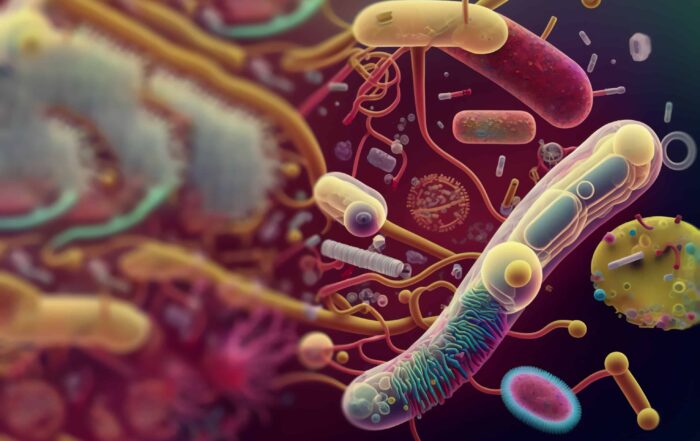A recent research review suggests that autism spectrum disorders (ASD) and other neurological conditions may cause changes in gut mucus, and these changes in turn may worsen symptoms of these conditions.
The study’s senior author, Elisa HillYardin, notes, “Mucus is a critical protective layer that helps balance good and bad bacteria in your gut, but you need just the right amount—not too little and not too much. Researchers have previously shown that changes to intestinal mucus affect the balance of bacteria in the gut but until now, no one has made the connection between gut mucus and the brain.”

The researchers analyzed data from 113 neurological, gut, and microbiology studies. They found that people with ASD, Parkinson’s disease, Alzheimer’s disease, and multiple sclerosis have different types of bacteria in their gut mucus compared to neurotypical controls, and have different ratios of beneficial and harmful bacteria.
The researchers note that the gut has its own neuronal network, the enteric nervous system, which regulates mucus secretion and renewal. They say, “We propose that factors that influence the nervous system may also affect the volume, viscosity, and porosity of mucus composition and subsequently, gastrointestinal microbial populations.” They add, “Since some microbes use mucus as a prominent energy source, changes in mucus properties could alter, and even exacerbate, dysbiosis related gut symptoms in neurological disorders.”
Hill-Yardin concludes, “If we can understand the role that gut mucus plays in brain disease, we can try to develop treatments that harness this precise part of the gut-brain axis.”
—
“The role of the gastrointestinal mucus in intestinal homeostasis: implications for neurological disorders,” Madushani Herath, Suzanne Hosie, Joel C. Bornstein, Ashley E. Franks, and Elisa L. Hill Yardin, Frontiers in Cellular and Infection Microbiology, May 28, 2020 (free online). Address: Elisa Hill-Yardin, [email protected].
—and—
“New gut-brain link: how gut mucus could help treat brain disorders,” Science Daily, May 29, 2020.
This article originally appeared in Autism Research Review International, Vol. 34, No. 3, 2020
Editorial – Fecal Microbiota Transplantation and Autism
Over the past several years, Fecal Microbiota Transplantation (FMT) has become the subject of growing interest in the autism community due, at least in part, to the increased awareness of the gut-brain
ARI’s Latest Accomplishments
Connecting investigators, professionals, parents, and autistic people worldwide is essential for effective advocacy. Throughout 2023, we continued our work offering focus on education while funding and support research on genetics, neurology, co-occurring medical
Biomarkers start telling us a story: Autism pathophysiology revisited
Antonio Persico, MD, a recent ARI Research Grant recipient, explores the role of biomarkers in understanding autism pathophysiology. He discusses the complexity inherent to neurodevelopmental conditions and emphasizes the need to combine




